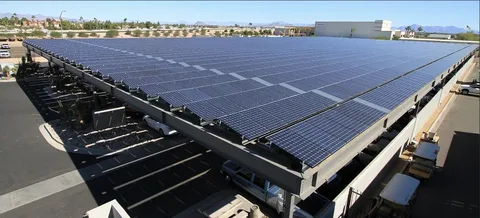As the world transitions to more sustainable energy sources, New Zealand is also taking steps to encourage the adoption of solar energy. One of the most impactful drivers behind this shift is the range of government incentives for solar power systems nz. These incentives are designed to reduce upfront costs, improve energy efficiency, and make clean energy accessible to more households and businesses.
Why Solar Power Matters in New Zealand
New Zealand is well-positioned for solar energy with its high levels of sunlight, particularly in regions like Nelson and Marlborough. Solar panels can help reduce dependence on fossil fuels, cut energy bills, and lower carbon footprints.
Despite the environmental benefits, many homeowners hesitate to install solar systems due to the initial investment. That’s where government incentives for solar power systems in NZ play a crucial role.
Current Government Support and Funding
Although New Zealand does not currently offer nationwide rebates like some other countries, there are still several ways the government is supporting solar adoption:
1. EECA Support
The Energy Efficiency and Conservation Authority (EECA) offers advice and resources for Kiwis looking to make energy-efficient home improvements, including solar installations. While EECA does not directly fund solar panels, it supports other technologies like energy storage, which complements solar systems.
2. Council-Led Schemes
Some local councils offer targeted financial assistance, such as the Rates Rebate Scheme or Sustainable Homes Programmes. For example, the Dunedin City Council and the Hawke’s Bay Regional Council have provided low-interest loans or rates-based financing to help homeowners install solar panels.
These localized efforts are part of broader government incentives for solar power systems in NZ, aimed at making renewable energy more accessible.
3. Interest-Free Loans from Banks
While not directly offered by the government, many banks (like ANZ and Westpac) partner with sustainability initiatives to offer interest-free or low-interest loans for green upgrades, including solar power. These loans are often supported by government-led clean energy goals.
The Future of Solar Incentives in NZ
The New Zealand Government has committed to becoming carbon neutral by 2050. As part of this strategy, more structured government incentives for solar power systems in NZ may be introduced in the future to accelerate the transition to clean energy.
EECA and other government agencies continue to monitor developments in renewable energy and may launch broader incentive schemes as demand grows and technology costs decrease.
Conclusion
While New Zealand may not yet offer a national solar rebate program, there are still valuable government incentives for solar power systems in NZ through local councils, advisory support, and financial partnerships. As the country moves towards a greener future, solar power will undoubtedly play a central role in the energy mix—and government support will be key to making that happen.


